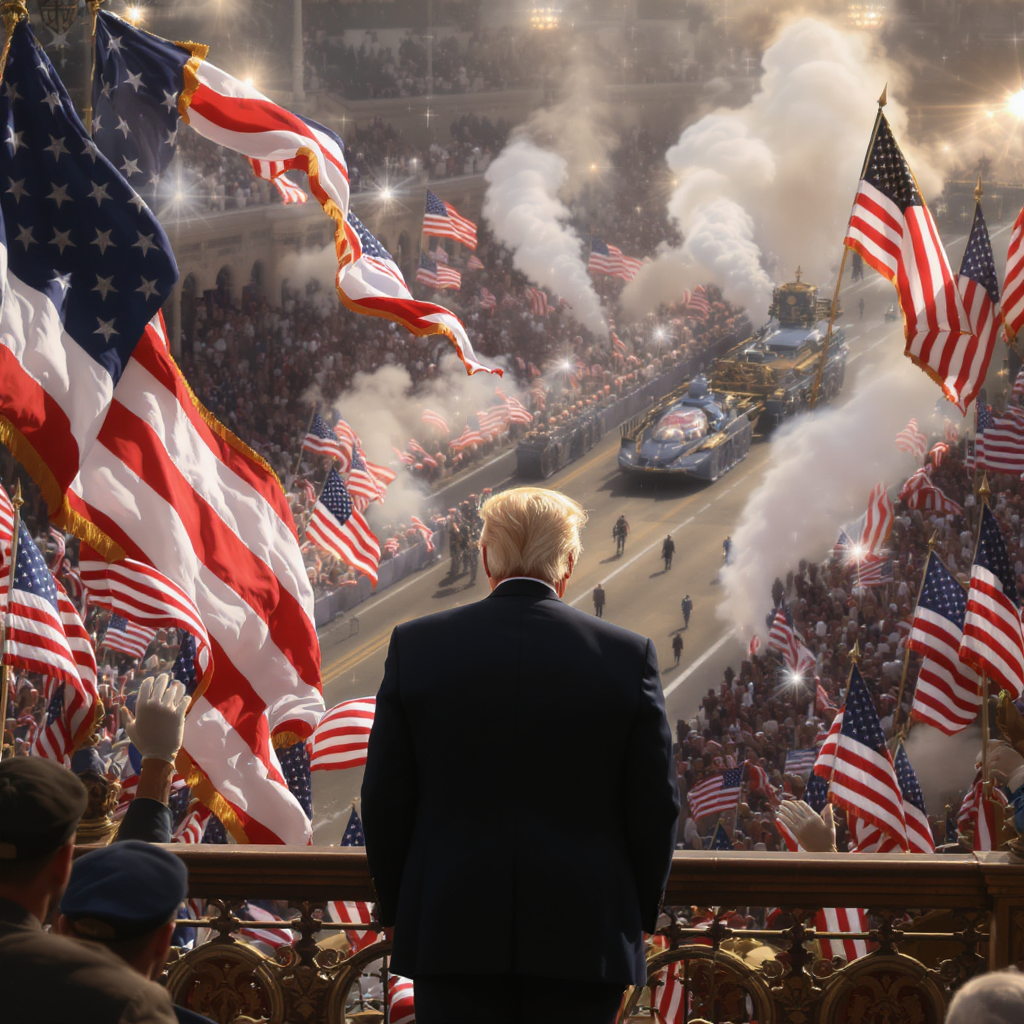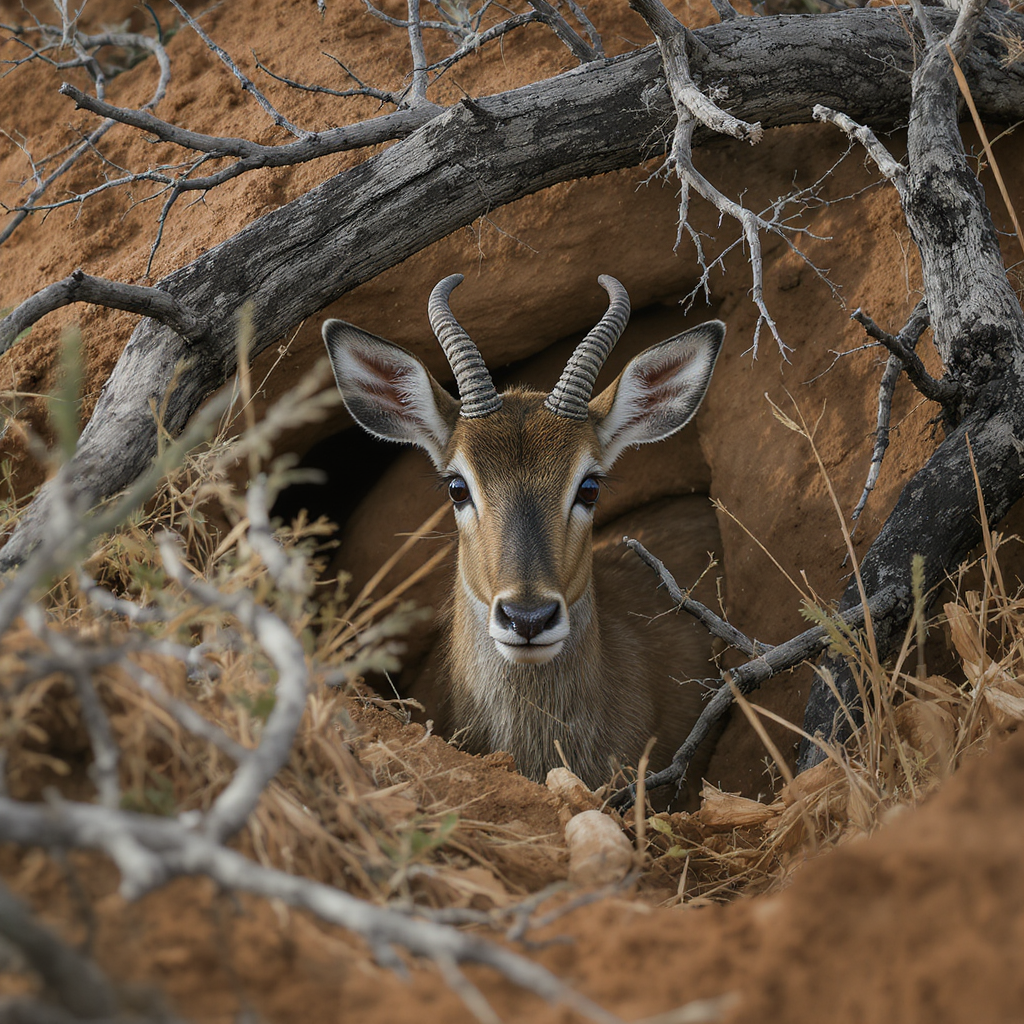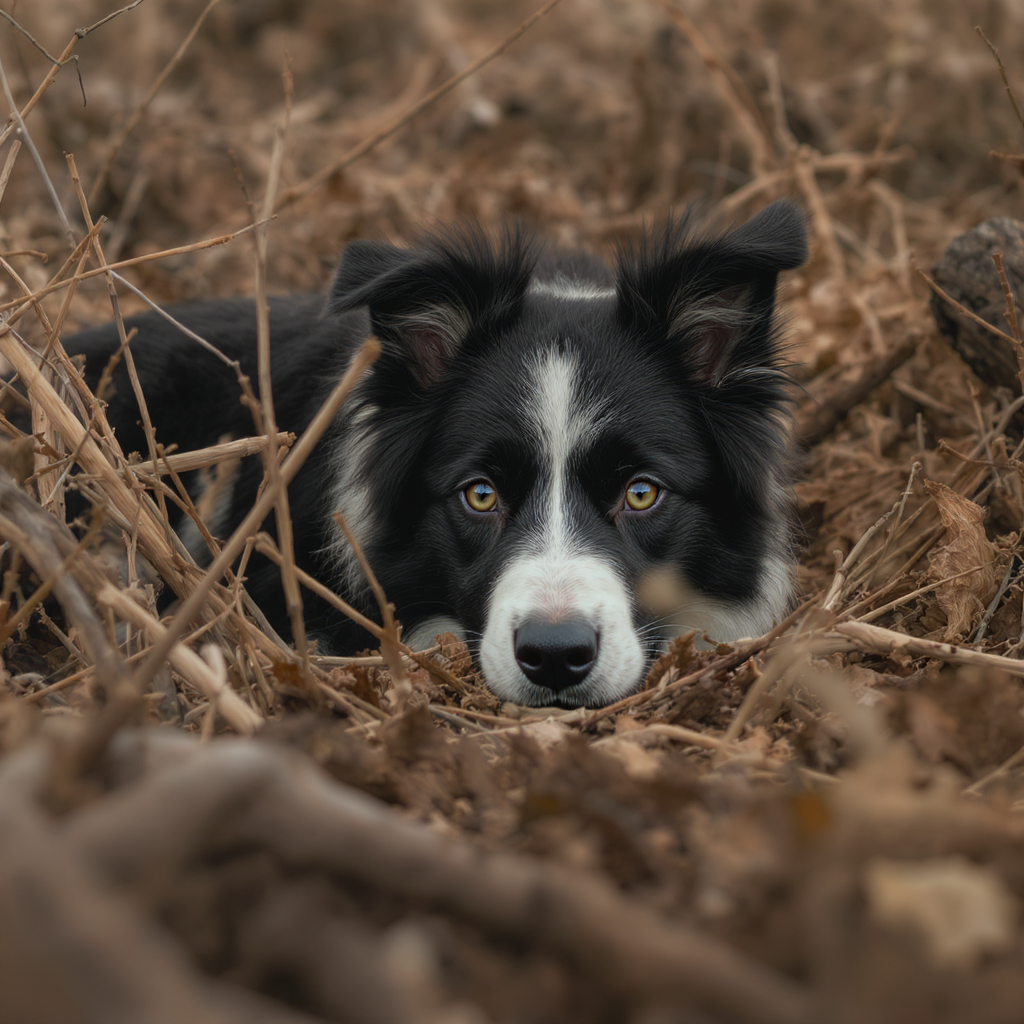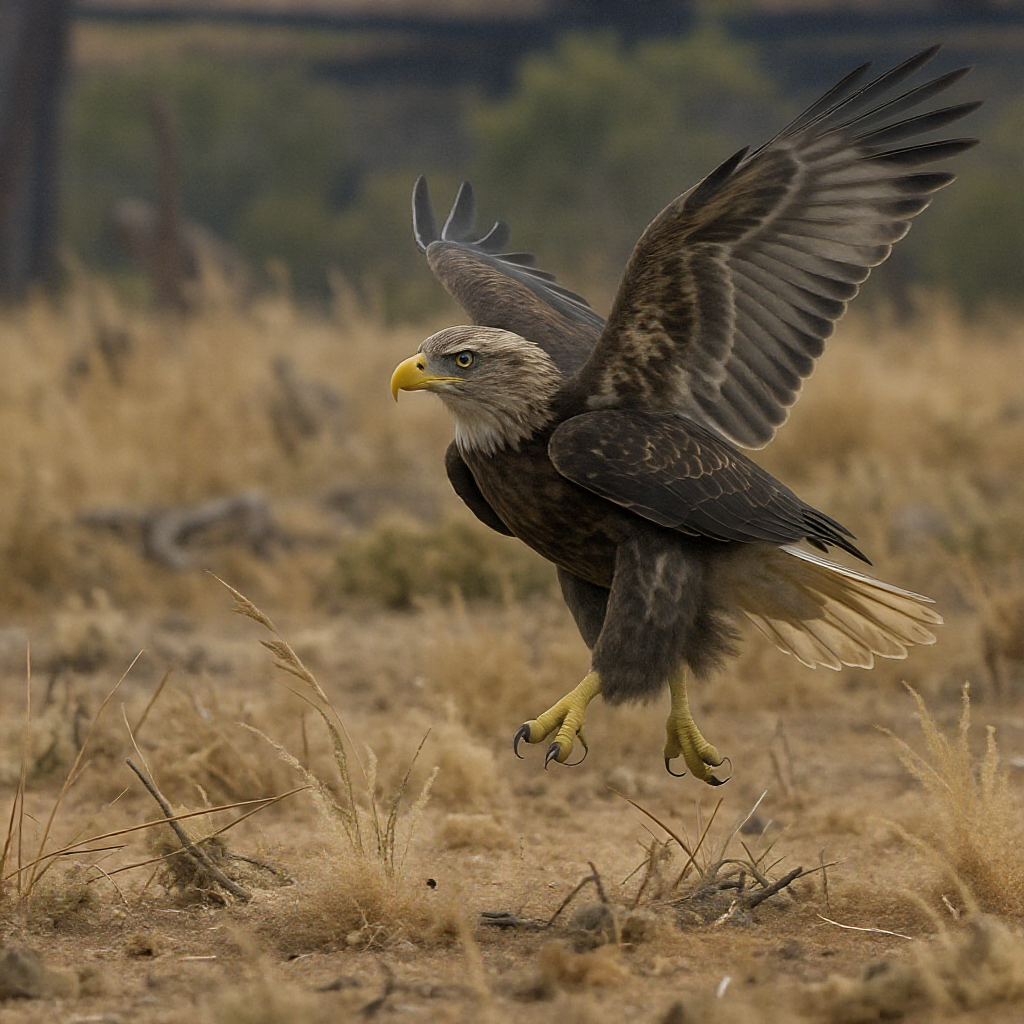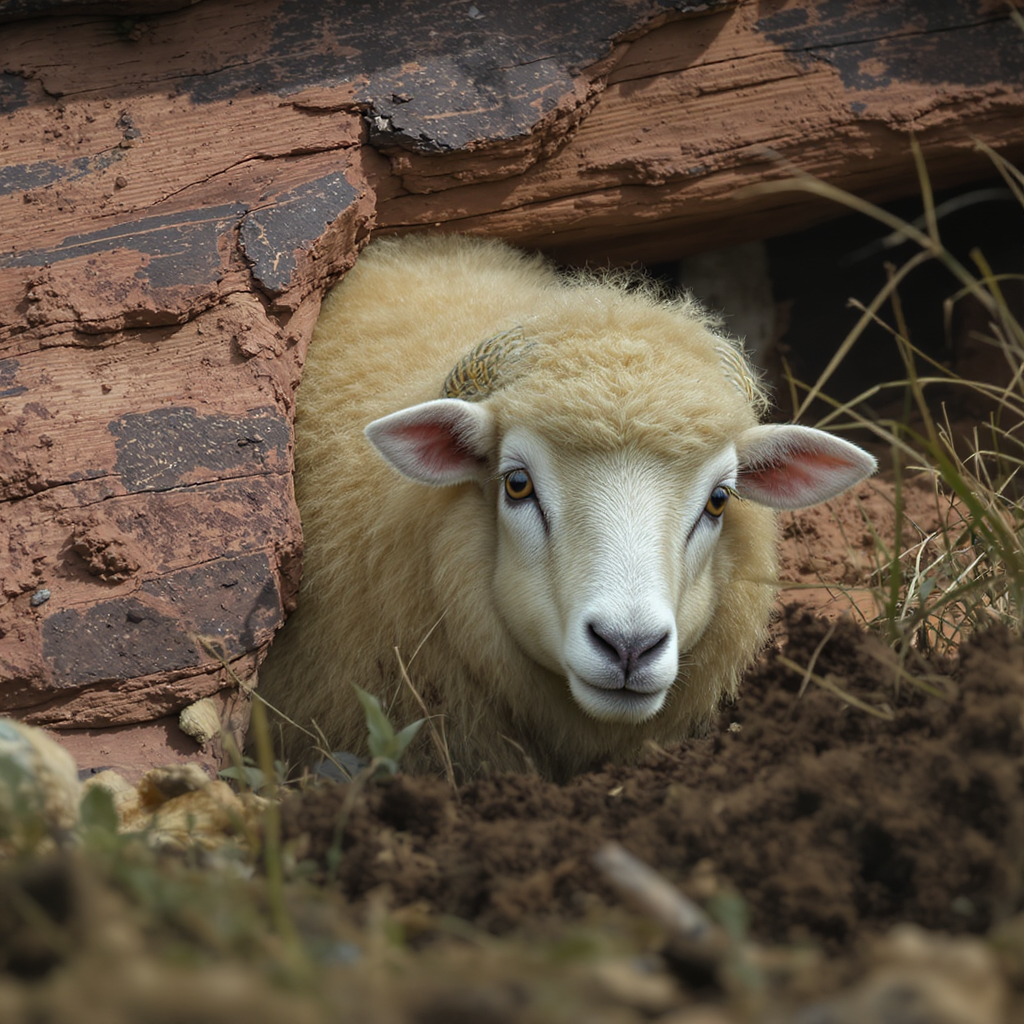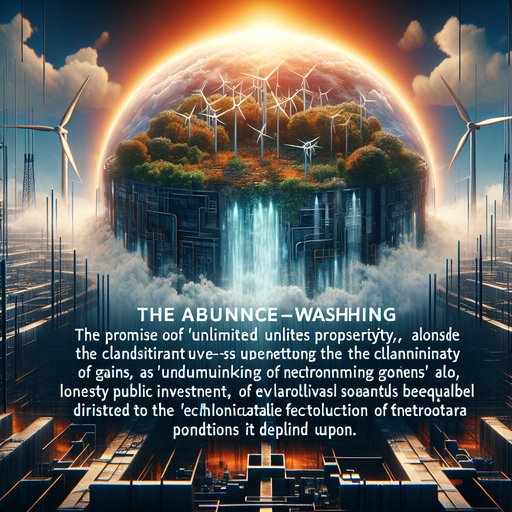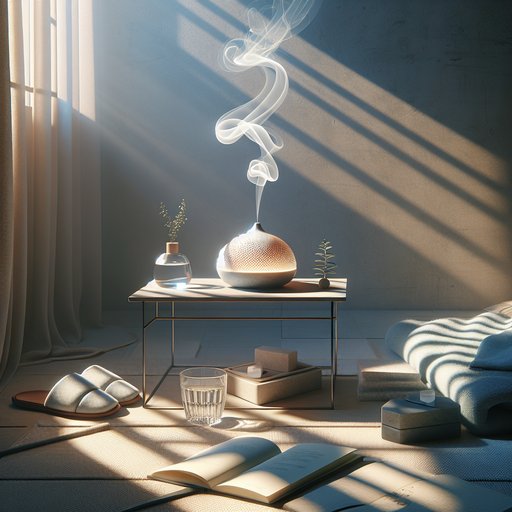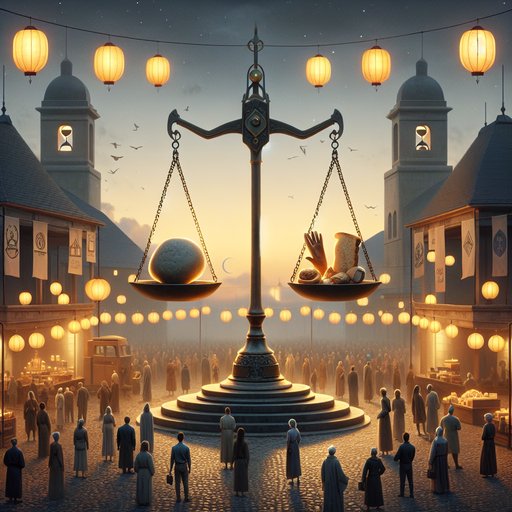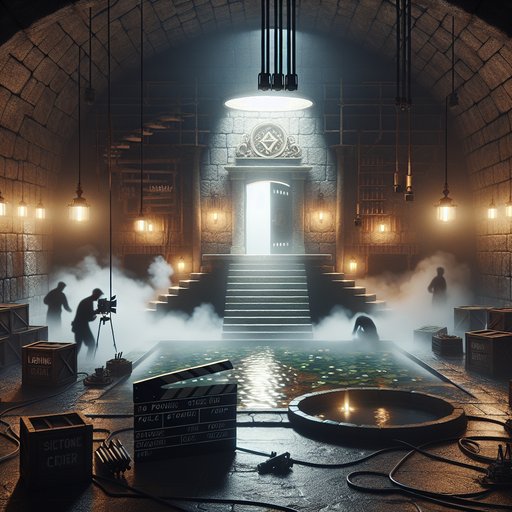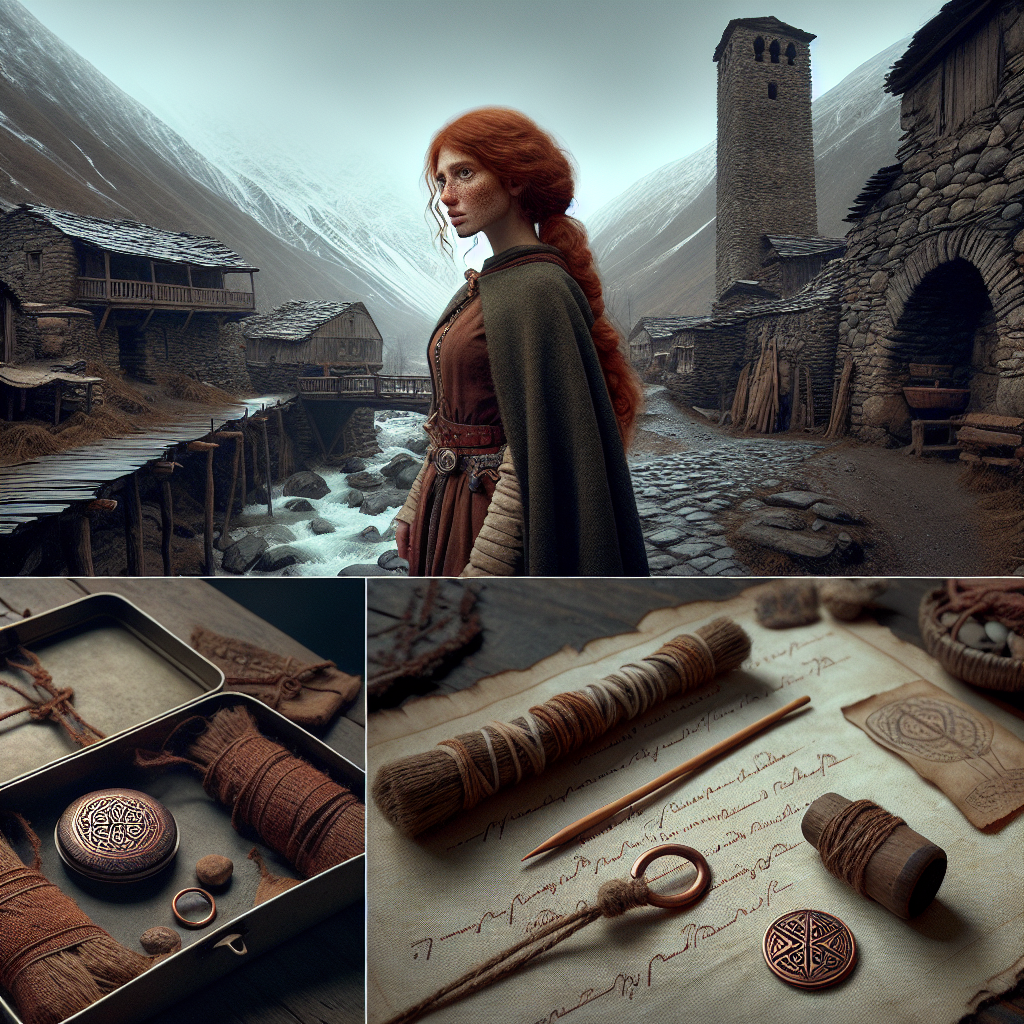
Barbra Dender, a red-haired, freckled 31-year-old traveler raised by her grandparents, arrives in Georgia’s remote Svaneti region to chase the kind of unusual mysteries she loves. In Ushguli, where medieval towers stand beneath glaciers, she is drawn to an eerie hum that threads the valley when the wind rises. Her hosts Mzia and her grandson Levan are welcoming but cautious, and a shepherd warns her not to disturb the “sisters of stone.” In her room, Levan secretly shows her a tin hidden beneath a floorboard with a hand-drawn map, a sigil, and a riddle in Svan script about Queen Tamar’s short shadow and a fissure near ice. At noon she follows tower shadows and finds a crack in the rock sealed by ice and a wooden token bearing the sigil. Doors close around her in the village, and a gray-wool figure stalks her steps. Seeking relief at a neighbor’s supra, Barbra hears a verse that echoes her riddle and meets Nino, who shows her a woven sash with the sigil and points her to a stone under an old bridge. At night, when the towers hum, a brass ring beneath the bridge yields to wind and shadow, opening a stair into darkness. Inside, a damp chamber offers a brittle message and a sash fragment, but her next day’s search for the Needle’s Eye proves a decoy. The melody’s variability defeats her attempt to decode it, and an anonymous warning slips under her door. At dawn, the gray figure reveals herself as Khatuna, a keeper of the old clans, who confesses to the warning and reframes the riddle: arrow slits (“needle’s eye”), a cleft boulder (“split mouth”), and noon at Queen Tamar’s statue (“short shadow”). Together they align loopholes, use Barbra’s token to open a warm-aired passage, and confirm that the towers are tuned wind instruments whose chord opens vents. Khatuna’s bone whistle triggers a deeper gate, but footsteps sound above. Barbra and Khatuna retreat into the under-glacier route, where a stone table, woven patterns, and sighing vents piece the puzzle together. Father Giorgi and Levan, who had followed to safeguard the secret, later confront Barbra with a choice: publish or pledge. True to her ethic, she vows to protect the mystery. The keepers accept her integrity and allow her a fitting relic—a thumb-sized bronze wind-reed marked with the sigil—as a token for her glass cabinet at home. They reseal the mechanisms, the towers resume their song, and the valley’s secret remains hidden, intact and guarded. Barbra departs with gratitude, memory, and the soft hum of the towers lingering in her ears.
Stone breathed like a sleeping animal around Barbra, the warm exhalation from the hidden vents thinning as the wind faltered above. The grinding gate behind her had paused on a rasping tooth of rock, then shivered forward another inch, an old machine deciding its own mood. She stood with her back against the cool wall, red hair twisted into a knot that kept it from brushing damp stone, leather jacket squeaking when she shifted. Her tight jeans were streaked with chalk from the scramble, blue-and-white Asics dark with meltwater, tank top clammy on her shoulder blades as she listened.
Footsteps thudded somewhere overhead, more than one set, the sound of weight and gravel that made every freckle on her forearms prickle in the dark. Khatuna lifted the bone whistle to her lips again, the pale length engraved with the sigil that matched Barbra’s wooden token. “If they are not mine, we must go forward,” she whispered, voice steady as if they were deciding between doorways in a house and not inside the ribs of a glacier. The whistle’s tone was low and urgent, a note that made the stone seem to tilt toward them, and the stalled gate answered with a weary sigh.
Barbra slid closer as, on the exhale, a seam in the floor brightened and warm air stroked her ankles, old lungs filling. She stepped through beside Khatuna, leaving the footsteps to echo on the other side of the closing stone and the valley’s hum to soften to a muffled memory. The corridor beyond narrowed to a throat and then widened without ceremony into a round chamber lit by pale light reflected from mica embedded in the ceiling. A stone table stood in the middle, its surface smoothed by generations of palms, a woven panel draped above it in the way of a tapestry but rigid with a crosswise stiffening of reeds.
Patterns on the panel matched the sash fragment Barbra had found beneath the bridge, and the pinched symbols she’d traced on her phone were here woven in full—knots, arrows, little open eyes. A brass-lined socket waited on the table’s lip, shaped exactly for the wooden token she’d found in the ice-choked fissure days ago. Her throat tightened as she slid the token in; she had chased the riddle across shadow and song, and now the old thing clicked into its old home with a tender familiarity that made her think of her grandparents’ kitchen clock finding the right beat. Khatuna’s fingers ghosted over the woven panel.
“Our elders coded the wind in cloth so no stone would need to carry words,” she said. “Arrow slits for syllables, tower pairs for intervals, the Enguri as the stave.” The bone whistle’s tone in her other hand quivered, and Barbra felt the chamber breathe back, the floor’s faint warmth growing around her Asics. She remembered the village nights when the towers hummed on the rising wind and how her recording had been different each evening; now those changes felt like a living instrument’s moods, not errors in her method. It was all exactly itself, and for the first time since the gray-wool figure had haunted the alleys, the puzzle pieces did not merely align—they locked.
They didn’t go far down the under-glacier route, only enough to prove that the mechanism she and Khatuna had glimpsed before was not a mirage. Narrow galleries branched like capillaries between stone and ice, their ceilings veined with frozen air pockets that jellied light into a milky glow. At each turn, carved vents sighed, faint as dozing bellows, and in the distance the towers’ chord tuned itself against the weather. Khatuna traced a band of chisel marks around a supporting pillar.
“Wind for warning, wind for water, wind for shelter,” she murmured. “In siege, the singers made bread with air.” Barbra ran her fingers across the same groove, mind leaping without control to the car crash she didn’t remember and the grandparents who had made a home out of quiet; it felt right that a refuge would not shout its greatness. A chest no bigger than a bread pan sat tucked into a niche, wrapped in a wool sari-like cloth threaded with the same sigil. Inside lay small things that had once been important tools: a folded map on thin parchment, a skein of dyed yarn still bright, a knackered brass ring pierced with tiny holes like a circular flute.
When Barbra lifted the ring, the faint breath from the vent coaxed a ghost note out of it, the tone hovering like a bee. She smiled despite the damp at her collarbones. “A wind-reed,” Khatuna said, her mouth curving in a way that looked like she was remembering a childhood joke. “We used to chase them across the floor when they sang wrong.” The giggle that almost escaped felt twelve years old and startled Barbra into silence; the gentle absurdity of ancient culture shaken into being by a stray draft undid a week’s worth of guardedness.
The footsteps came again, this time not overhead but through the very air as a tremor that made the mica in the ceiling flare and then dull. Stone always had its own ideas, and the old machine made up its mind. The gate behind them began to wake, a rhythm of clicks and drags that matched neither whistle nor cloth, the valley’s wind altering its chord. Khatuna’s eyes picked out the necessary pattern faster than Barbra could blink; she put two fingers on the panel as if playing a harp and raised the whistle to tune the chamber.
“Time,” she said, tapping the panel’s corner where a knotted line ended in a little woven mouth split in two. “We leave with what we can carry only in words.”
“What about them?” Barbra asked, the old fear of being chased by unseen rules tickling the nape of her neck as she thought of the footsteps above. Khatuna tilted her head, listening in that strange way of hers that seemed half-devout, half-engineer. “If they are keepers, they will wait to see if you run or bow,” she said.
“If they are not, the stone will deal with them.” It was not cruel, just simple, and Barbra felt that thing she had always held ready—the part of her that had learned to be alone at four—draw in a breath and stand up very straight inside her ribs. “Then let’s not run,” she said. They retraced the corridor’s curve and reached the gate as it yawned on its last open sigh. Two figures stood silhouetted by the dim noon outside, and Barbra had to blink at the surprise of recognition: Father Giorgi, broad as a cupboard in his cassock, and Levan, his hair flattened by sweat, both men damp to the elbows.
Mzia’s grandson had the same worn-dry look as the first morning he had shown her the tin under the floorboard, but there was something new in his face—resolve threaded with worry. He lifted a palm. “We followed when the wind changed,” he said simply. “Grandmother said if you were going to be foolish, you would need someone to carry the other end.” Barbra huffed a ragged laugh that could have been a sob if it had had room to grow.
Father Giorgi’s eyes went to the panel behind them, then to the socket where her token sat, then to Barbra herself. “You have asked the valley to trust you,” he said. “We have asked you nothing yet.” He drew a small cross on the air not at her but beside the metal lip, blessing the mechanism or making peace with it; either way, his hands were gentle. Khatuna spoke before Barbra could, her voice low.
“She has not taken a photograph she will sell. She has not posted a map. She has brought a thing home and placed it back in its mouth.” The priest nodded, as if that was the beginning of a catechism. They closed the gate together, Barbra bracing her shoulder against the lever while Levan eased the pressure with a counterweight Khatuna showed him.
Outside, the Enguri roared, a fierce eraser of detail, and wind stitched itself between the towers in a chord Barbra now recognized as the one that opened nothing at all—safety in song. Only when the brass ring beneath the bridge clicked into its neutral notch and the breath of the valley settled did anyone speak beyond necessity. Father Giorgi turned to Barbra, hands folded. “One more question,” he said.
“Why you?” She could have told them about the glass wall cabinet at home, about the way she stood before it at night and let each relic hold its story up like a little lantern, but she kept it simple. “I go where the unusual peeks out,” she said. “I don’t need to own it to love it.”
Khatuna lifted the wool-wrapped chest as if it weighed more than its size, then closed it again and pushed it back into the niche with a palm as tender as a kiss. She untied the sash around her own waist—the one woven with the pattern of arrows and eyes—and looped it once around Barbra’s wrist, not as a claim but as a promise.
“Take this,” she said, plucking from the chest a thumb-sized bronze wind-reed pitted with age and etched with the sigil, a twin of the larger ring’s delicate logic. Barbra held it on her palm; even in the slight draft, it purred, a housecat of a note. “A relic that sings only to you when the weather is right,” Khatuna said. “It asks you to come back by memory, not by road.”
Back at the guesthouse, Mzia had a pot of bean stew going, and someone had set out herbs on a chipped plate.
The supra was small, just Levan, Father Giorgi, Khatuna, and two of the elders who murmured toasts with eyes that softened as the toasts lengthened. Barbra had dried her hair by the stove and tried not to think about the freckles dusted across her nose, which always came out darker after mountain wind; she wore her favorite black leather jacket over a clean tank and the same jeans from the morning. The blue-and-white Asics were tied precisely, her grandmother’s habit of neat bows stitched into her fingers. When her turn to speak came, she lifted her glass.
“To the song that holds the valley,” she said. “And to the hands that keep it from becoming noise.”
She slipped out after to breathe, the towers dark against a sky rinsed pink by the long sunset that glided between glaciers. The humming rose as the air cooled, and the hair on her arms lifted as if the chord had brushed her like a familiar greeting. She set her phone to record one last time, not to decode, not to hunt, but to remember; the act itself felt like a goodbye kiss on the cheek of a friend you would rather clutch.
Levan stood beside her for a minute and said nothing, which was exactly right. Barbra knew how to fall in love too quickly and how to let it pass like summer rain; this was not that, but something gentler, a warmth that didn’t need its own story. Morning tightened the sky into a clear blue, and she packed with the same care she reserved for maps and mementos. The bronze wind-reed she wrapped in a strip of soft cloth and tucked into the padded pocket of her pack, the wooden token—returned to its brass socket beneath the bridge—now only a memory she could keep without breaking anything.
Mzia pressed a packet of flatbread and cheese into her hands and a kiss onto her forehead as if Barbra had always been a granddaughter. Father Giorgi walked her as far as the lane, his blessing light as mist. Khatuna nodded from the path, the keeper’s smile a small seal pressed into warm wax. Back in her apartment weeks later, the glass wall cabinet gleamed in the afternoon light, a gallery of places where secrets had let her in and then asked her to close the door behind her.
The wind-reed had its own shelf between a cedar bead she had traded in the Atlas and a shard of blue glass from a half-seen temple in the desert; when the city’s gusts angled just so through the cracked window, it answered with a sigh that belonged to the Enguri. She stood with her hands in the pockets of her jeans, leather jacket over her shoulders, freckles stubborn as ever and, for once, easy to ignore. The story of Ushguli was safe where it belonged, in the guarded glens and in the woven patterns of people who would keep it long after she had walked on. Relief unfurled through her like a sail; the mystery had not been solved so much as set back into its frame, and she had been trusted to carry the smallest of its notes home.
